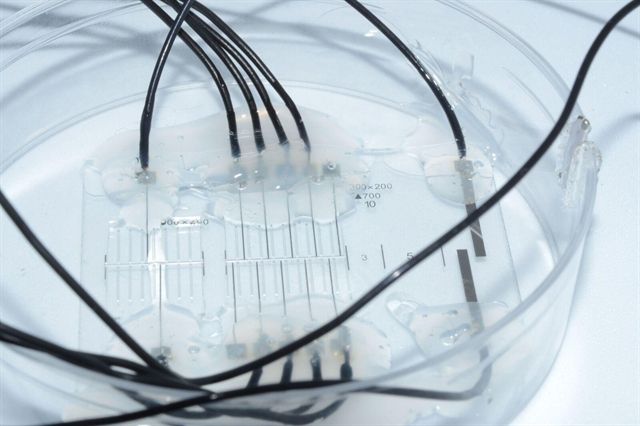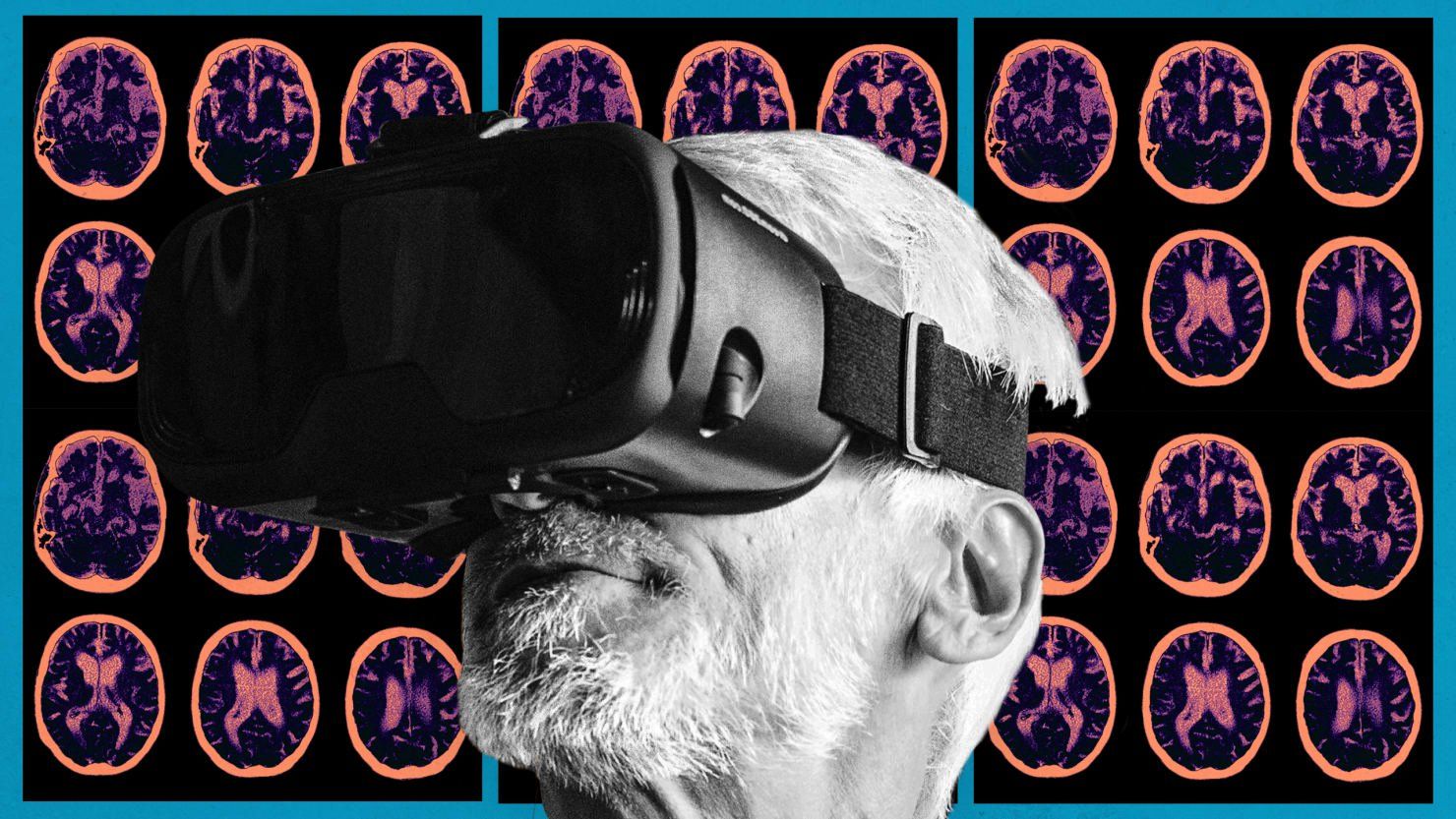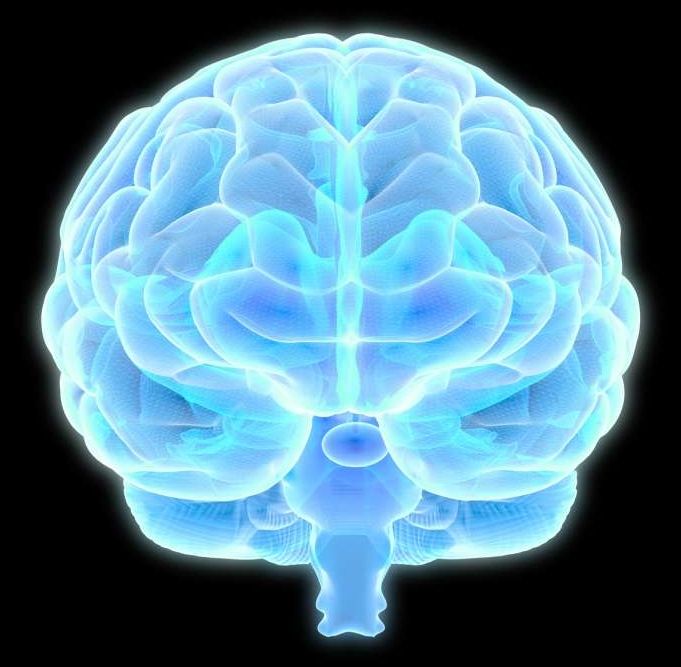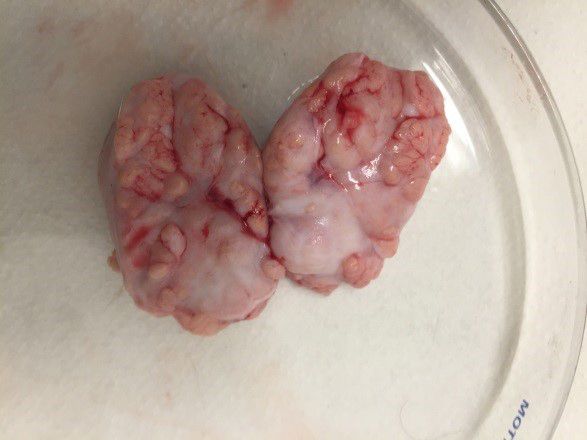Archive for the ‘neuroscience’ category: Page 797
Nov 3, 2018
Nerve-on-a-Chip Makes Neuroprosthetics Possible
Posted by Klaus Baldauf in categories: biotech/medical, cyborgs, neuroscience
Neuroprosthetics are implants that contain an arrangement of multi-contact electrodes capable of substituting for certain nerve functionalities in the human body. This technology has the potential to work wonders for people who have been injured or paralyzed, able to restore the sense of touch for amputees, help someone who has been paralyzed to walk again by stimulating their spinal cords, or silence the nerve activity of people suffering from chronic pain. This would provide many people with a greater degree of mobility, functionality, and a higher overall quality of life.
Stimulating nerves at the right place and the right time is essential for implementing effective treatments, but remains a challenge due to implants’ inability to record neural activity precisely. “Our brain sends and receives millions of nerve impulses, but we typically implant only about a dozen electrodes in patients. This type of interface often doesn’t have the resolution necessary to match the complex patterns of information exchange in a patient’s nervous system,” says Sandra Gribi, a PhD student at the Bertarelli Foundation Chair in Neuroprosthetic Technology.
Nov 2, 2018
How Virtual Reality Can Help Fight Dementia
Posted by Genevieve Klien in categories: biotech/medical, neuroscience, virtual reality
Immersive experiences have been used for video games and entertainment. But a new therapy could make VR an accessible therapy for dementia patients.
11.02.18 9:58 PM ET
Nov 2, 2018
Depression: Three new subtypes identified
Posted by Genevieve Klien in categories: biotech/medical, neuroscience
The scientists also used functional MRI scanners to study the participants’ brain activity, enabling them to map 78 brain regions and examine the connections between these areas.
“The major challenge in this study,” explains first study author Tomoki Tokuda, who is a statistician at OIST, “was to develop a statistical tool that could extract relevant information for clustering similar subjects together.”
Tokuda developed a new statistical method that allowed the researchers to break down more than 3,000 measurable features into five data clusters. The measurable features included the incidence of childhood trauma and the initial severity of the depressive episode.
Nov 2, 2018
Celprogen 3D bioprints brain organelle for neurological disease research
Posted by Klaus Baldauf in categories: 3D printing, bioprinting, biotech/medical, neuroscience
Stem cell research firm Celprogen Inc. has been working on something quite exciting for some time now, which has remained largely under the radar until very recently. The California-based company announced it has successfully 3D printed a human brain organelle using brain stem cells. The bioprinted brain could have applications in studying neurological diseases.
More than just announcing the bioprinted brain organelle, Celprogen has also used the brain to study the “role of Microglia activation and deactivation in neurological diseases.” Through this research and experimentation, the company says it has identified and characterized 11 lead compounds that could be potential drug candidates for diseases such as Alzheimer’s, Parkinson’s and Glioblastoma.
Nov 2, 2018
Transhumanist Zoltan Istvan becomes advisor at “Brain Space”! Welcome!
Posted by Zoltan Istvan in categories: bitcoin, neuroscience, space travel, transhumanism
I recently become an advisor at Brain Space, a new #blockchain company creating a better system to deal with copyrights and patents. They have an ICO coming up here very soon. Here’s an article (with a video I did) with more info: https://medium.com/…/transhumanist-zoltan-istvan-becomes-ad… AND CHECK OUT THEIR WEBSITE: https://brain-space.io/
Zoltan Istvan, an American-Hungarian, began a solo, multi-year sailing journey around the world at the age of 21. His main cargo was 500 handpicked books, mostly classics. He’s explored over 100 countries — many as a journalist for the National Geographic Channel — writing, filming, and appearing in dozens of television stories, articles, and webcasts. His work has also been featured by The New York Times, Outside, Wired UK, Slate, Vice, San Francisco Chronicle, BBC Radio, CNN, CBS, RT, Fox News, the Travel Channel, and in much other media.
More about Zoltan at https://www.linkedin.com/in/zoltan-istvan-78aa2964/
Continue reading “Transhumanist Zoltan Istvan becomes advisor at ‘Brain Space’! Welcome!” »
Nov 1, 2018
Gut bacteria may control movement
Posted by Xavier Rosseel in categories: health, neuroscience
🤔👀
A new study puts a fresh spin on what it means to “go with your gut.” The findings, published in Nature, suggest that gut bacteria may control movement in fruit flies and identify the neurons involved in this response. The study was supported by the National Institute of Neurological Disorders and Stroke (NINDS), part of the National Institutes of Health.
Nov 1, 2018
New Atlas Used to ID Brain Parts for Plans and Actions
Posted by Genevieve Klien in category: neuroscience
A detailed picture of cell types in some areas of the mouse cortex is put to the test.
- By Simon Makin on November 1, 2018
Nov 1, 2018
Bioquark Inc. — Eat This, Not That! — Ira Pastor
Posted by Ira S. Pastor in categories: aging, biotech/medical, chemistry, DNA, genetics, health, life extension, neuroscience, science, transhumanism
Tags: aging, anti-aging, bioquantine, bioquark, biotech, diet, health, nutrition, reanima, reanimation, regenerage, regeneration, wellness


















